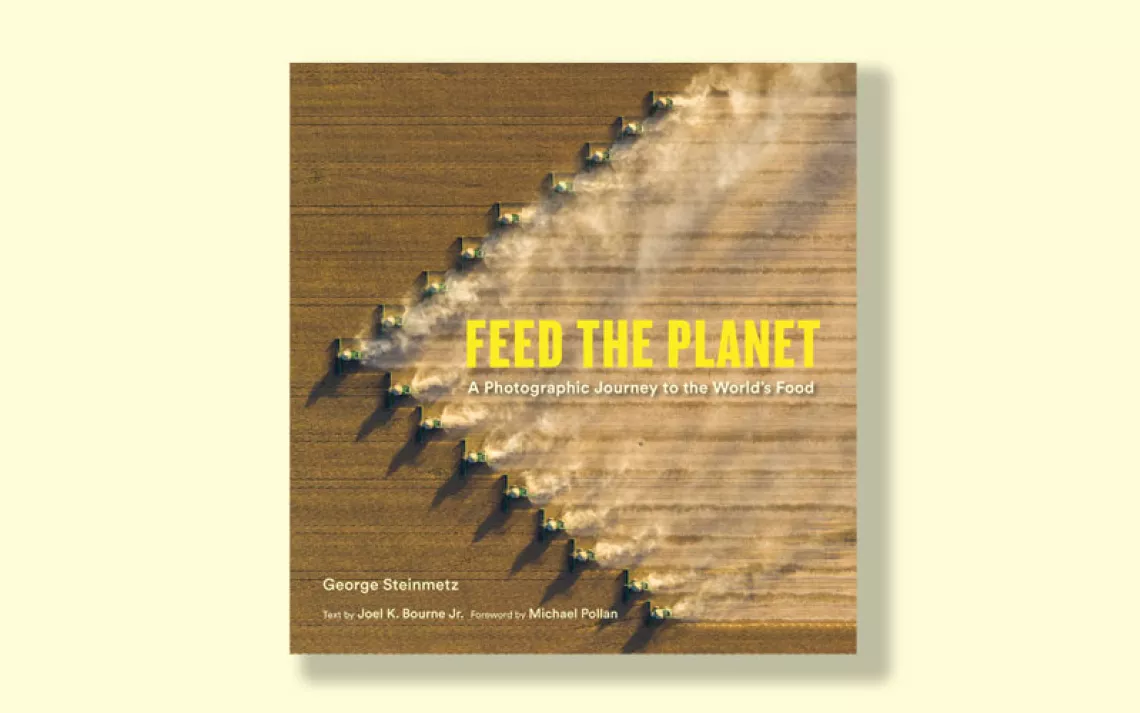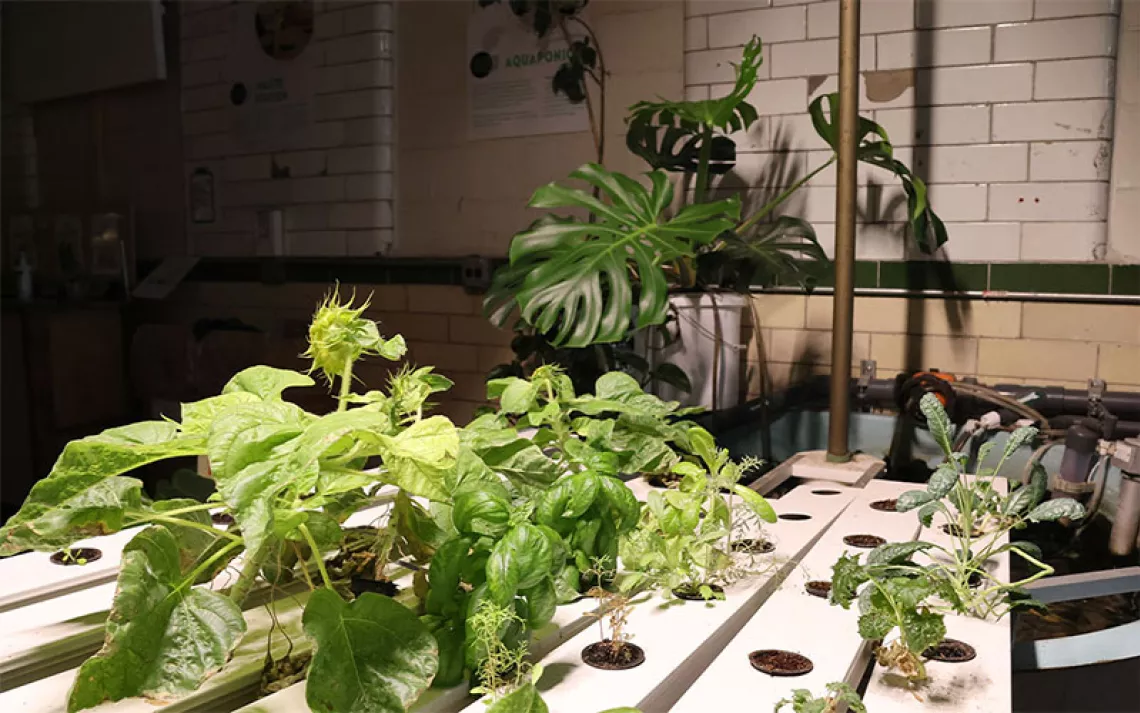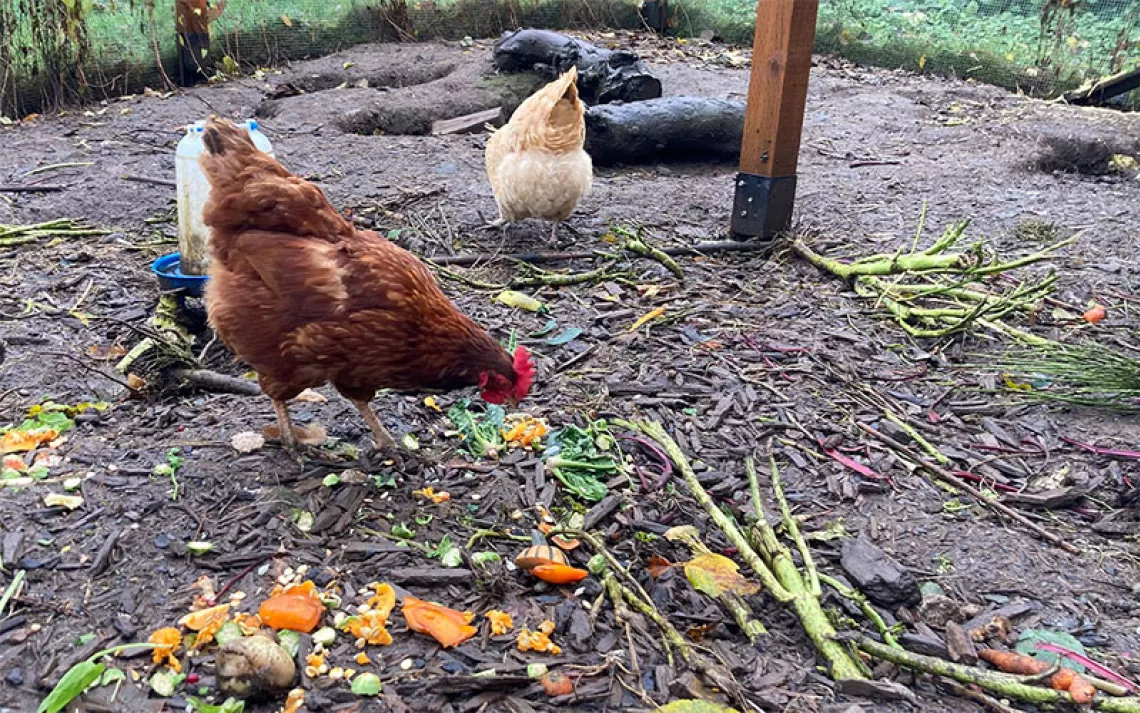Patagonia Intends to Help Solve Climate Change With Snacks
How the outdoor apparel giant is navigating the food world

Photo courtesy of Patagonia Provisions
Four years ago, Yvon Chouinard, founder of sustainable outdoor outfitter Patagonia, handed employee Birgit Cameron a sack of kernza seeds and said, “Go talk to Wes.” Chouinard was referring to Wes Jackson, the octogenarian founder and president emeritus of the Land Institute, an organization based in Salina, Kansas, that works to develop alternatives to destructive agricultural practices.
At the Land Institute, Cameron found Jackson “sitting on a whole vault of perennial grain crop seeds,” with “proof after proof,” she says, of how perennial agriculture—that involves planting crops that require few inputs to produce food—can pull carbon from the air, where it traps greenhouse gases and fries the planet, down into the soil, where it does no harm. A wheatgrass with dense, deep roots, kernza is an ideal candidate for trapping carbon in the soil.
But until Chouinard sent Cameron, no one had helped Jackson actually get kernza out of the vault and into the marketplace. “He had this beautiful smorgasbord of low-rise muffins and cookies and things,” says Cameron. "Kernza’s high in protein, low in gluten. He mentioned that someone had tried brewing a small-scale beer, but that no one had gone out with anything in a bigger way,” she says. “I said, ‘I think you’re ready for that,’ but Wes said, ‘Oh, it’s still 20 years out.’”
Cameron was in the process of helping Chouinard to expand Patagonia’s business into a brand-new category: Patagonia Provisions, a line of ethically and sustainably sourced food products. The idea, says Cameron, was to apply to cuisine what the company had learned from years spent peddling in organic cotton and torture-free goose down.
After that first meeting at the Land Institute, Cameron worked for years to find growers, special processing equipment, and brewers (Portland's Hopworks Urban Brewery) before last October’s unveiling of Long Root Ale. Featuring organic barley, organic yeast, organic Chinook hops, and kernza, the brew is produced without tilling, which preserves topsoil and uses much less water than conventional wheat beer requires. The ale was the latest “provision” to a line that has, in the past three years, introduced freeze-dried tsampa soup (made with a perennial barley long used by Nepalese and Tibetan mountaineers), fruit and nut bars, buffalo jerky, smoked salmon, and hot cereals.
At a glance, it all seems like haute trail cuisine meant to fuel backpackers decked out in high-end polartec fleece and polycycle hoodies, but Patagonia Provisions’ website includes food preparation guidelines for both trail (using dehydrated ingredients) and home (with fresh ones). The idea is that eating sustainably, anywhere, behooves the planet. Patagonia’s CEO, Rose Marcario, has hinted that food could one day be even bigger than clothing for the company.
I recently sat down with Cameron to learn more about Patagonia’s role in the food industry—and about what the company means when it claims its products actually help regenerate agriculture.
—Katie O'Reilly
♦
Sierra: I’m going to quote the self-aware label decorating your Long Grain Ale cans—What’s a clothing company know about beer? Can you tell me more about that decision to get into food?
Birgit Cameron: If you think of Patagonia as an environmental company, it doesn’t really matter what category we’re in. We’ve been in apparel, yes, but we can also go into investing in solar, into food, into all these other areas. Yvon has been into food-based solutions for so long, but it was never quite the right time to launch a food company—there needed to be more education around food and around the environmental organics movement. But I think right now, people are ready to be talking about this.
Perhaps food can be a gateway to enter some of the issues Patagonia has been dealing with as we’ve long been involved in agriculture—like issues around wool and cotton. We were the first to switch to organic cotton, after Yvon saw the damage conventional farming was doing to fields. Considering food is the biggest contributor to climate change, we couldn’t stay away. Food offers so many solutions—it's really highlighting the path forward.
I heard General Mills is now partnering with the Land Institute to help commercialize kernza for use in its cereals and snacks, citing the fact that a drought-resistant crop that doesn’t need to be replanted each year is good for business. Does Patagonia Provisions aspire to model sustainable food manufacturing solutions for other companies?
We like to be tip-of-the-arrow innovative, but if others are willing to invest in new alternatives that focus on the solution and adopt our processes—like a General Mills or an Anheuser-Busch—then great. We’re small and nimble. They’re obviously larger, so even a small move—say, shifting 15 percent of their grain-based products from wheat to kernza—would mean a real shift in carbon coming down, because they’re going to have to plant a whole lot of it. We were happy to be the first to the market and happy to pave the way, but we’re not going to hold it and say It’s ours. If others want to adopt what we’ve done, then we’ve won.
As of right now, most Patagonia Provisions are sold online and at Patagonia stores, and the beer is in several West Coast Whole Foods outposts. Any plans to make your offerings more widely available?
Yes, because I think people need to understand this is not camping food. It’s everyday food. If you’re a parent or just lead a busy life and want to add some freshness and nutrition, it’s a real win. If it’s in the grocery environment, we’re reaching more people. Last fall, we launched in Japan. They’re leading the organic movement in Asia, and sales are far beyond expectations. They love our beer. We’re going out to the natural and organic food category in the marketplace, hopefully starting this year.
In terms of Patagonia’s overarching operations, do you see the emphasis shifting from apparel to food?
No, they’ll be parallel. We call our Sausalito base “Patagonia North.” We’re very much a part of Patagonia, but at the same time, we recognize that there are real differences in the way food and apparel are done.
What’s next for “Provisions”?
We have so many new products coming out—we just launched black bean chile and are rolling out a kamut-based side dish at the end of March. You just pour boiling water on it, and it fluffs up beautifully as a side grain—one rich in ancient grains, veggies, and mushrooms, which is the only organism other than our own skin that absorbs vitamin D. We’re excited that our food helps tell a story about nutrition and ancient grains—a story that started with the ancient Egyptians. We hope it also tells a story about eating a little bit lower on the food chain, and of the power of legumes and grains to supply nutrition and convenience. We’re also looking into different iterations of beer and developing other kernza-based products. There’s a lot in the hopper—it’s exciting for us to explore all these ways food can actually regenerate agriculture.
Meaning that we actually help produce more plant-based food when we consume these foods?
Exactly. We’re trying to move beyond sustainable and embrace regenerative agriculture. I say that because sustainability connotes stasis. Regenerative agriculture research shows that not tilling the soil, using fewer inputs, and planting more perennials can actually generate more food. It restores and regenerates the soil, which regenerates the bees, which regenerate our food. It’s about allowing Mother Nature to do what she’s supposed to do, without trying to reengineer her.
 The Magazine of The Sierra Club
The Magazine of The Sierra Club



